Interrogatoire

J'écoute la pluie qui martèle le toit
(continuer)
(continuer)
envoyé par Marco Valdo M.I. 6/9/2009 - 23:17
Gallipoli
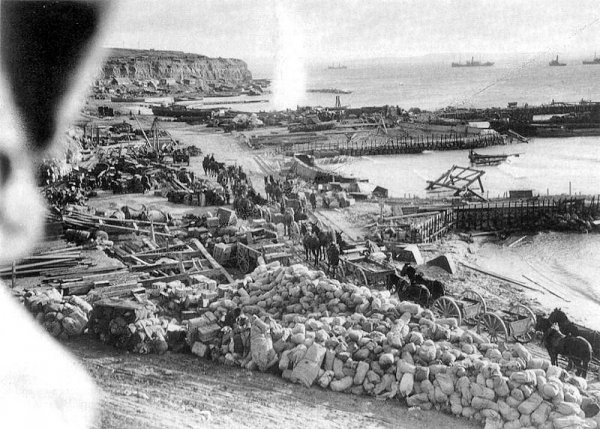
Written by Mike Swan e Daire Doyle (The Memories)
Performed by The Fureys
The song Gallipoli refers to the slaughtering of allied troops during the poorly planned and badly executed Battle at Gallipoli in Turkey in 1915. It is the Irish counterpart of the Australian oriented song The Band Played Waltzing Matilda.
(from Triskelle)
Performed by The Fureys
The song Gallipoli refers to the slaughtering of allied troops during the poorly planned and badly executed Battle at Gallipoli in Turkey in 1915. It is the Irish counterpart of the Australian oriented song The Band Played Waltzing Matilda.
(from Triskelle)
I remember the day it stands clear in my mind
(continuer)
(continuer)
6/9/2009 - 18:44
Parcours:
La Grande Guerre (1914-1918)
The Connaught Rangers
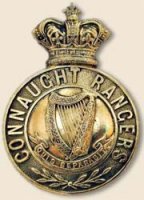
The Connaught Rangers, or Connaght Rangers, were established in 1793 as an Irish regiment in the British army and fought its first battles in Flanders against Napoleon's troops in 1794 during the Revolutionary Wars.
This first campaign was a disaster for the inexperienced regiment, but in the campaigns that followed in the West Indies, Egypt, India and South America the Connaught Rangers evolved in a respected, tough, and well-oiled war machine. During the Peninsula War from 1808 until 1814 the regiment fought in Wellington's army on the Iberian Peninsula and obtained the honourable nickname The Devil's Own.
Not only in battle the Connaught Rangers lived up to its nickname, as the regiment is also known for its plundering habits.
During the First World War the Connaught Rangers were deployed at several battlefields in for example Belgium and France. The regiment adopted It's A Long Way... (continuer)
This first campaign was a disaster for the inexperienced regiment, but in the campaigns that followed in the West Indies, Egypt, India and South America the Connaught Rangers evolved in a respected, tough, and well-oiled war machine. During the Peninsula War from 1808 until 1814 the regiment fought in Wellington's army on the Iberian Peninsula and obtained the honourable nickname The Devil's Own.
Not only in battle the Connaught Rangers lived up to its nickname, as the regiment is also known for its plundering habits.
During the First World War the Connaught Rangers were deployed at several battlefields in for example Belgium and France. The regiment adopted It's A Long Way... (continuer)
To the tiny homesteads of the West
(continuer)
(continuer)
6/9/2009 - 18:29
Sergeant William Bailey
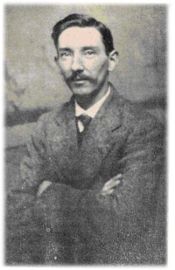
Anti-enlistment songs, and later on anti-conscription ones, relied heavily on sarcasm, a device used by ballad makers throughout history because it was considered the only weapon the oppressed had against the powerful. These ballads specialized in lampooning politicians and authority figures who encouraged Irishmen to fight in foreign wars. The figure of the ‘Recruiting Sergeant’ has traditionally been a target for verbal abuse and during the Great War he provided inspiration for many ballads as in this one from Tipperary (The Recruiting Sergeant).
The recruiting sergeant in Dublin fared no better than his colleague in Tipperary. The Dublin ballad maker Peadar Kearney who wrote many popular songs during this turbulent period, including the Irish national anthem, Amhrán na bhFiann, treated the recruiting sergeant in an equally sarcastic manner in his song ‘Sergeant William Bailey.’
BBC History
The recruiting sergeant in Dublin fared no better than his colleague in Tipperary. The Dublin ballad maker Peadar Kearney who wrote many popular songs during this turbulent period, including the Irish national anthem, Amhrán na bhFiann, treated the recruiting sergeant in an equally sarcastic manner in his song ‘Sergeant William Bailey.’
BBC History
Sergeant William Bailey was a man of high renown,
(continuer)
(continuer)
6/9/2009 - 16:21
Saxon Shilling

1969
Album: "At Home with The Dubliners"
Da una poesia di Kevin T. Buggy
Lo scellino dei Sassoni (vedi anche The King's Shilling) era la paga del soldato nell'Impero Britannico. La canzone esorta gli irlandesi a non combattere per gli inglesi, ma per liberare la propria terra.
Album: "At Home with The Dubliners"
Da una poesia di Kevin T. Buggy
Lo scellino dei Sassoni (vedi anche The King's Shilling) era la paga del soldato nell'Impero Britannico. La canzone esorta gli irlandesi a non combattere per gli inglesi, ma per liberare la propria terra.
Hark a marshall sound is heard
(continuer)
(continuer)
6/9/2009 - 16:11
The King's Shilling
anonyme
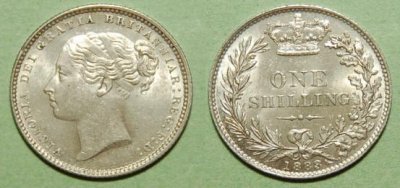
Uno scellino fu per molto tempo la paga giornaliera del soldato in Gran Bretagna. Ecco perché l'espressione "prendere lo scellino del re" significava arruolarsi come soldato o nella marina.
For many years a soldier's daily pay, before stoppages - was the shilling given as an earnest payment to recruits of the British army and the Royal Navy of the 18th and 19th centuries. The expression "to take the King's shilling" (or the Queen's shilling) meant that a man agreed to serve as a soldier or sailor.
wikipedia
For many years a soldier's daily pay, before stoppages - was the shilling given as an earnest payment to recruits of the British army and the Royal Navy of the 18th and 19th centuries. The expression "to take the King's shilling" (or the Queen's shilling) meant that a man agreed to serve as a soldier or sailor.
wikipedia
as sung by Jean Redpath. Thanks to Mudcat for the Digital Tradition!
Oh my love has left me wi' bairnies twa
(continuer)
(continuer)
6/9/2009 - 15:47
When Margaret Was Eleven
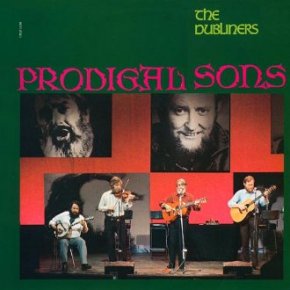
Recorded by The Dubliners in "Prodigal Sons" (1983)
My father said farewell [var. sailed away], and the band played tunes of glory
(continuer)
(continuer)
6/9/2009 - 15:09
Second Life

(2007)
"Da dieci anni scriviamo canzoni e facciamo entertainment a modo nostro e oggi molte cose sono cambiate. In un momento storico particolare come questo abbiamo sentito la necessità di esprimere un messaggio importante, che ponga l’accento sulla reale speranza di una seconda vita intesa come seconda possibilità per se stessi e per il mondo. Un mondo in cui ciascun individuo deve essere libero di fare le proprie scelte per costruire o ricostruirsi un futuro migliore sulla base della condivisione di valori universali importanti".
gritalia
"Da dieci anni scriviamo canzoni e facciamo entertainment a modo nostro e oggi molte cose sono cambiate. In un momento storico particolare come questo abbiamo sentito la necessità di esprimere un messaggio importante, che ponga l’accento sulla reale speranza di una seconda vita intesa come seconda possibilità per se stessi e per il mondo. Un mondo in cui ciascun individuo deve essere libero di fare le proprie scelte per costruire o ricostruirsi un futuro migliore sulla base della condivisione di valori universali importanti".
gritalia
For you (for you), for you (for you), for you (for you)
(continuer)
(continuer)
5/9/2009 - 19:49
L'Apathétique

L'Apathétique
Canzone léviane – L'Apathétique – Marco Valdo M.I. – 2009
Cycle du Cahier ligné – 48
L'Apathétique est la quarante-huitième chanson du Cycle du Cahier ligné, constitué d'éléments tirés du Quaderno a Cancelli de Carlo Levi.
Cette fois, Lucien mon ami l'âne aux sabots luisants comme la pierre philosophale, notre prisonnier-blessé-guerrier plonge au cœur de son monde clos. Quand va-t-il en sortir ? Comment va-t-il en sortir ? Il passe au plus profond de l'angoisse, d'une sorte de moment désespéré. « Je suis dans l'obscurité,/Aveugle comme un prématuré » avec un temps incalculable, avant la sortie... C'est un peu pour ça que la canzone porte ce titre beethovenien ou tchaikowskien, au moins par l'assonance. De toute façon, deux grands tragiques.
C'est assez inquiétant une pareille situation, dit Lucien l'âne, et je comprends très bien qu'il soit tellement bouleversé.... (continuer)
Canzone léviane – L'Apathétique – Marco Valdo M.I. – 2009
Cycle du Cahier ligné – 48
L'Apathétique est la quarante-huitième chanson du Cycle du Cahier ligné, constitué d'éléments tirés du Quaderno a Cancelli de Carlo Levi.
Cette fois, Lucien mon ami l'âne aux sabots luisants comme la pierre philosophale, notre prisonnier-blessé-guerrier plonge au cœur de son monde clos. Quand va-t-il en sortir ? Comment va-t-il en sortir ? Il passe au plus profond de l'angoisse, d'une sorte de moment désespéré. « Je suis dans l'obscurité,/Aveugle comme un prématuré » avec un temps incalculable, avant la sortie... C'est un peu pour ça que la canzone porte ce titre beethovenien ou tchaikowskien, au moins par l'assonance. De toute façon, deux grands tragiques.
C'est assez inquiétant une pareille situation, dit Lucien l'âne, et je comprends très bien qu'il soit tellement bouleversé.... (continuer)
Pour l'oiseau, son vol chantourné
(continuer)
(continuer)
envoyé par Marco Valdo M.I. 3/9/2009 - 23:01
×
![]()

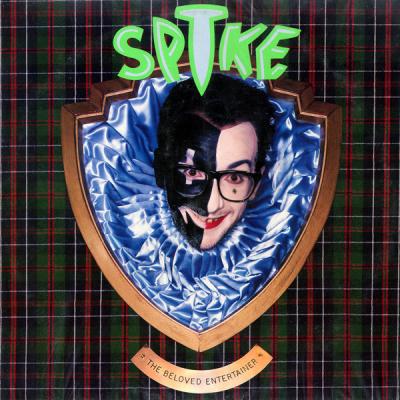
Canzone léviane – Interrogatoire – Marco Valdo M.I. – 2009
Cycle du Cahier ligné – 49
Interrogatoire est la quarante-neuvième chanson du Cycle du Cahier ligné, constitué d'éléments tirés du Quaderno a Cancelli de Carlo Levi.
Tu sais, Lucien mon ami, comment ça va dans les guerres des hommes et même, dans les guerres qui n'osent pas dire leur nom, qui se cachent sous le nom de paix... C'est même l'état le plus constant de la guerre, c'est aussi l'état le plus sournois de la guerre de Cent Mille Ans que les riches mènent contre les pauvres. Le plus sournois puisqu'on fait croire qu'il n'y a pas la guerre, que parce que les armes n'entrent pas ouvertement en action pour tuer, conquérir, massacrer... les gens, il n'y aurait pas la guerre. Quelle blague ! Regarde bien, Lucien, seul un des deux camps détient les armes (toutes les armes, y compris des armes lourdes,... (continuer)